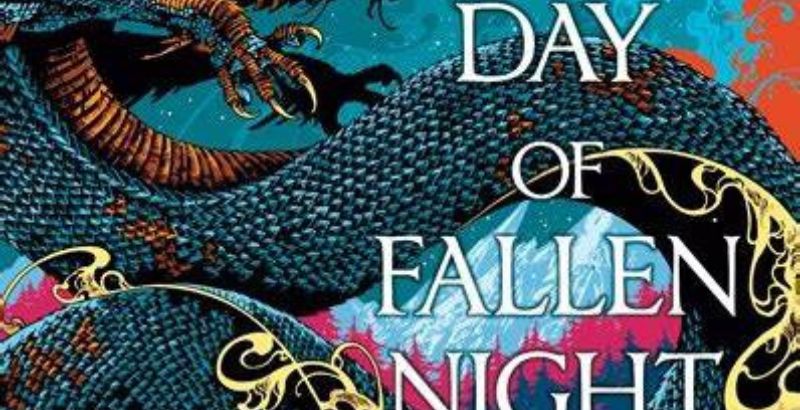
The upcoming young adult novel Never Look Back by Lilliam Rivera is an own voices retelling of the Greek myth of Orpheus and Eurydice. Published by Bloomsbury with art by Krystal Quiles, Never Look Back tells the stories of Pheus and Eury. Pheus is a teenage boy living his best life wooing girls with his masterful bachata guitar playing and singing while living with his Pops in the Bronx from the summer. Eury is living with her aunt and cousin Penelope for the summer in the same building as Pheus. She and her mother were forced to flee to Florida from Puerto Rico after Hurricane Maria. She goes to spend the summer in the Bronx to get away from the torment that has followed her from the Island since childhood.
Never Look Back is written in the alternating first-person perspective of its two main characters. It is written in the natural vernacular of its teenage characters in a way that occasionally feels forced but generally is reflective of the way teenagers talk rather than the stilted language of an omnipotent narrator. There is some beautifully poetic language strewn throughout, but it somehow manages to feel just like a part of the characters’ language, even if realistically they may not match an average teenager’s lexicon. The language also includes regular inclusion of Spanish that non-Spanish speaking readers may not understand exactly, even with context clues. But this only serves to further cement the narrative in authentic voices rather than catering to a broader or whiter audience.
I adore both Pheus and Eury and the growth they have over the course of Never Look Back, both together and as individuals. Pheus’s father Apollo is one of the best role models I’ve read recently, neither filling typical stereotypes of divorced fathers nor being a perfect paragon. As a result, Pheus is a great kid. Even if he does bow to the pressure of his friends on occasion, like any normal teen, he generally knows when his friends are treating people poorly, for example, and is perfectly willing to stand up to them.
Eury is quiet and shy, in part because that’s just her personality, but in part, because she has been tormented and abused by a spirit named Ato since she was a child. He is the essence of an abusive relationship, constantly building Eury up only to put her down and manipulate her into thinking he is the only one who cares about her and that everything bad in her life is her own fault. He came to her when Eury was a child, befriending her when she had nobody else. Now Ato vows to end her life and take her to el Inframundo to be with him forever.
Of course, nobody in Eury’s life believes a spirit is tormenting her, and she is caught between those who believe she should seek medical help and those who abhor the idea and that she should seek solace in the church. Following her mother’s wishes, she sticks to the latter and lives her life in constant fear of Ato hurting her and those around her.
Until she meets Pheus. Their love story, even from the onset begins to subvert the myth Never Look Back is based on. Eury is the first person in Pheus’s life who he can’t just win over with his guitar. Their relationship is based on much more.
As a retelling of a classical myth, Never Look Back is excellent. The Bronx setting and the Afro-Dominican and Puerto Rican heritages of its characters help transform the myth into a deep and multi-layered story about belief, love, and colonialism. The entire store is coated in symbolism and narrative that exemplify each of the themes in ways the original myth never could have conceived. The imagining of spirits as the obvious zenith of colonialism is especially well woven throughout the entire book. This is done, in part, through the integration of Taíno, Indigenous Puerto Rican mythology alongside Greek, Roman, and Biblical illusions and narrative. It’s sometimes a juxtaposition, sometimes a natural sequence of religious acculturation, but always well written and deeply impactful.
Writing a story based on a well-known myth can sometimes take away from the emotion of the story when the reader knows generally the outline the story is going to take. However, Never Look Back, because it builds on, tweaks, and subverts the original myth so creatively and so naturally through this reimaging, every emotional moment lands with full impact.
Never Look Back felt too rushed, especially in the second half. There is a moment where the book suddenly takes a dramatic turn, though its impact is well amplified by the theme of belief and faith that permeates the entire novel. At that turn, things move at breakneck speed; not really any different than the first half, but that makes me wish there was just a little bit more to both halves. It’s not that the pace is too fast, I just wish the book was a bit longer to help let the impact of its various twists and turns seep in longer before the next one. The pacing does make the very ending feel a tad anti-climactic, just because of how quickly it wraps up. But, I cried anyway at how beautiful it was despite being slightly corny.
Never Look Back is a wonderful exploration of the classical myth of Orpheus and Eurydice through authentic and captivating voices. It’s themes of belief, love, and colonialism elevate the original myth while making it into a story all its own. While I wish it was a tad longer, it’s a beautiful love story not bound to the tropes or expectations of its source material.
Never Look Back is available September 1st wherever books are sold.
Never Look Back
TL;DR
Never Look Back is a wonderful exploration of a classical myth of Orpheus and Eurydice through authentic and captivating voices. It’s themes of belief, love, and colonialism elevate the original myth while making it into a story all its own. While I wish it was a tad longer, it’s a beautiful love story not bound to the tropes or expectations of its source material.






